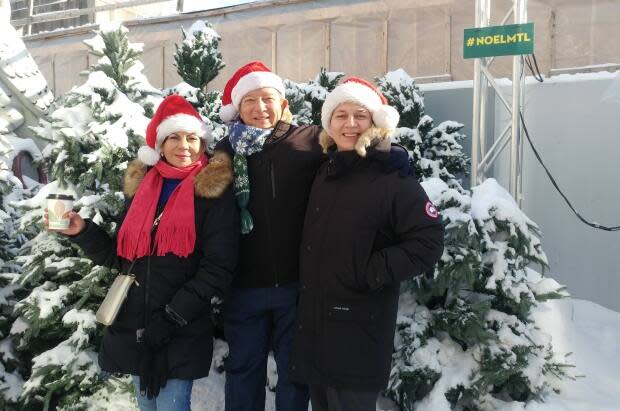Uncertainty, anxiety for Ottawa man navigating immigration system during COVID-19

An Ottawa man who applied for permanent residency during the first wave of the COVID-19 pandemic says his journey, which isn't over, has been a waiting game with double the uncertainties.
Nicolas Campoverde, originally from Ecuador, came to Ottawa to study international business in 2012. He graduated from Carleton University and has since been working to score enough points to apply for permanent residency.
"My biggest concern was what happens if somebody in my family got ill," said Campoverde, who's the only member of his family living in Canada.
"My dad told me, 'Hey, if I die right now, you won't be able to come to my funeral.'"
After two years of working, Campoverde said he was eligible to apply for permanent residency this year. He said he submitted all his documents by mid-March, shortly after the World Health Organization declared the pandemic.
It definitely makes you feel a bit anxious not knowing if you're going to be remaining here. - Nicolas Campoverde
In early May, he got a letter requesting his biometrics, or fingerprints, within 90 days.
But he only got a call to schedule an appointment on Oct. 9 — after five months of what he said was zero communication from Immigration, Refugees and Citizenship Canada (IRCC).
"I think I could have received an email saying, 'Hey, we're going to call you, don't worry,' or something."
With Service Canada Centres, which collect biometrics, disrupted during the pandemic, Campoverde said he felt "stuck in limbo for a really long time."

Though his process was scheduled to be completed by September, Campoverde says he's still waiting for next steps. He had to apply for a bridge work permit in anticipation of his current permit expiring due to the delays.
Campoverde said he "had no idea" what he was doing at times as he navigated those processes. At some points, he said he called the government to confirm his status.
"[I asked], 'Can you reassure me that it's OK for me to be here? I shouldn't be flying back home?'"
"Being alone more than anything is just a little bit scary," he said, noting how he heard stories of others being deported pre-COVID-19. "[I have] a folder with my documents ready by the door.
"It definitely makes you feel a bit anxious not knowing if you're going to be remaining here for the rest of your life or not," he said.
Delays not surprising, says lawyer
Jamie Liew, an immigration lawyer and an associate professor at the University of Ottawa, said at the best of times, the immigration process is lengthy.
From what she's heard, longer waits have been "very common" during the pandemic.
He shouldn't worry. - Jamie Liew, immigration lawyer
Liew said she sympathizes with the immigration department, which is grappling with health restrictions.
She suggested permanent residency applications may be regarded as less urgent during the pandemic, compared to applications like family reunification.
"If [Campoverde] has temporary residence status, [then] he shouldn't worry because there are so many people out there who don't even have status. Those are the people who are in a very, very precarious situation," Liew said.
WATCH | Campoverde says he's unable to leave Canada for fear he won't be allowed back:
Priority for vulnerable people, essential workers
IRCC spokesperson Béatrice Fénelon said in an email that processing times have "generally been delayed" due to COVID-19.
Fénelon said the IRCC extended deadlines to submit documents for people who experience delays.
"No application in progress will be closed or refused as a result of [disruptions]," she said.
IRCC is prioritizing applications from Canadians returning to Canada, vulnerable people and essential service workers, she said.


